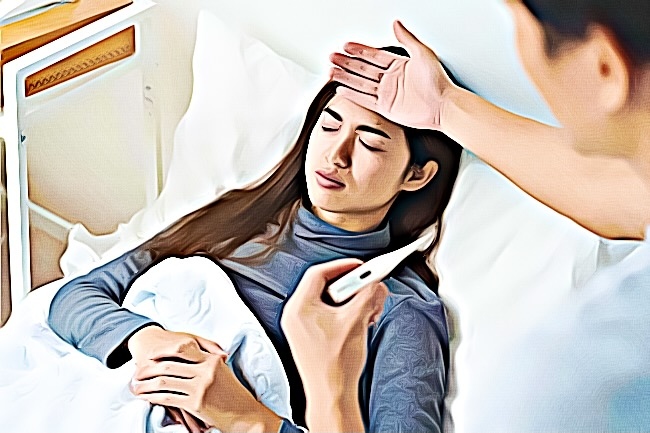If you drink alcohol to excess and suddenly stop, you can expect withdrawal symptoms to start within a few hours or a few days. Your alcohol detox symptoms may merely be uncomfortable if you haven’t had a drinking problem for long. But if you’ve abused alcohol for years, it may be severe and even life-threatening.
Quitting cold turkey is one of the worst ways to detox, and should not be done without professional supervision. If you can’t get through the withdrawal process without medical help, you should seek supportive care in a detox center under the supervision of medical professionals.
How Long Does it Take to Detox from Alcohol?
If you go through a medically supervised detox and rehab program, you can expect your recovery process to last between 3 to 8 weeks. The length of your recovery process depends on a lot of factors, including your age, the amount of alcohol you consumed, the frequency of your drinking, and your personal health conditions.
Keep in mind that withdrawal from alcohol is different from quitting smoking. When you quit smoking, you may experience symptoms that only last for a day or two. But when you quit alcohol, you can expect to experience symptoms for days or weeks.
Quitting alcohol is hard, but it’s possible with the right support. If you’re planning to quit drinking in the near future, know that it’s not uncommon to feel like you’re going through the same withdrawal symptoms repeatedly.
How Excessive Drinking Can Lead to Withdrawal
When you drink heavily, your body starts to break down alcohol as a way to metabolize it. This process takes about an hour. Once this breakdown is complete, your brain and body become used to the presence of alcohol. They depend on it to feel normal. This is why it’s so hard to stop drinking on your own. Your body and mind will rebel, and you’ll feel the effects.
The intensity of your symptoms depends on how much alcohol you consume. It will vary with the amount of alcohol you drink and how often. Some people can gradually develop a physical dependence on alcohol. But those who drink heavily every day may go through withdrawal more quickly.
When you drink alcohol, it causes changes in the brain’s chemistry. When you stop drinking, this change in your brain chemistry can make it hard for you to think clearly. You may feel restless, depressed, or anxious.
Alcohol withdrawal syndrome generally lasts for a few days to a few weeks, but the symptoms may persist for months. Here are the common signs of withdrawal from alcohol depending on the hours since the last consumption:
6 Hours After You Stop Drinking
After six hours, you may start to experience the following early signs of withdrawal symptoms:
- Anxiety
- Shaky hands
- Headache
- Nausea
- Vomiting
- Insomnia
- Sweating
12-48 Hours After You Stop Drinking
At this stage, severe physical effects of alcohol withdrawal may surface and be the most severe. You might start to experience hallucinations and seizures.
The reason why alcohol withdrawal causes seizures is because a high level of alcohol in the blood causes a disruption in the brain’s neurotransmitters. This disruption leads to over-excitation of neurons. It is believed that seizures occur due to this over-excitation.
Seizures that occur as a result of withdrawal are called alcohol withdrawal seizures. These seizures are both brief and go untreated. But they happen so quickly, you won’t have time to contact a medical professional on your own.
Seizures can cause brain damage, so they must be treated if they happen. For example, if you are epileptic, you may experience a seizure with or without alcohol. To prevent alcohol withdrawal seizures, it’s vital to seek medical attention once you decide to quit drinking alcohol.
As for the hallucinations, as the body rebels against a lack of alcohol, it will do whatever it takes to continue feeling the effects of booze. This may include a form of hallucination that causes people to see and feel things that don’t exist.
Hallucinations in alcohol withdrawal are most common during the early stages. But they can appear at any time during the withdrawal process. They can also persist for a few days, weeks, or months after detox, and may be triggered by stress, fatigue, or hunger.
48-72 Hours After You Stop Drinking
At this stage, you may start to experience alcohol withdrawal seizures, delirium tremens, respiratory failure, and other alcohol withdrawal symptoms such as the following:
- Confusion
- Racing heart
- High blood pressure
- Fever
- Heavy sweating
What Is Delirium Tremens?
Delirium tremens are a severe, life-threatening stage of alcohol withdrawal. It usually occurs about 48 hours after you stop drinking. Delirium tremens is characterized by the following:
- Confusion
- Seizures
- Hallucinations
- Sensitivity to light
- Nausea
- Agitation
- Tremors
- Dangerously high fevers
- Hyperthermia
- Cardiac arrhythmias
Delirium tremens is a rare condition. You’re unlikely to experience it, but it can kill you if you don’t get treatment.

Detoxing Alcohol to Minimize the Impact of Withdrawal Symptoms
If you decide to quit drinking, it’s best to detox from alcohol in a private detox center under the supervision of medical professionals.
The goal of detox is to help you overcome a dependency on alcohol and make sure that you go through alcohol withdrawal syndrome in a safe environment. While undergoing detox, you can expect to have medical supervision as your body goes through the process of detoxing and withdrawal.
Detox can be a two-step process: medically supervised detox and rehabilitation. In medical detox, you are under medical supervision and in a very safe and comfortable environment. You can use medications to reduce withdrawal symptoms, but you will be guided by a team of medical professionals.
But to avoid worsening your alcohol withdrawal symptoms, you should avoid the following:
- Alcohol-containing drinks;
- Foods with alcohol;
- Drugs;
- Tobacco;
- Other substances;
Avoiding these substances will make it easier to avoid withdrawal symptoms. A medical professional can advise you on the best way to detox, as well as how to get through the process.
Risks of Alcohol Detox: Dehydration
When you stop drinking alcohol, your body will react to a lack of alcohol by releasing stress hormones that trigger nerve receptors. This will be accompanied by sweating and an increase in salivary gland and tear production. All of this leads to increased fluid intake as your body tries to keep up with the loss of fluids.
As a result, your body is at risk for dehydration. To avoid dehydration, you should consume clear liquids during the early stages of alcohol withdrawal. This will help your body compensate.
Additionally, you should drink more water as you experience alcohol withdrawal symptoms, especially the physical ones. Your mind requires a lot of stimulation, so you may feel unusually fatigued. Drinking more water will help you through the fatigue and make you feel better.
The Bottom Line: Withdrawal Symptoms and the Importance of Support
It’s quite clear that alcohol withdrawal is no joke. You’re at risk for developing severe withdrawal symptoms, and you might even lose your life if your body goes through shock as a result of alcohol withdrawal.
The best way to avoid these severe symptoms is to get in touch with a medical professional. This will ensure that you seek proper treatment, no matter what.
Alcohol withdrawal can be dangerous, even life-threatening. But the process can be made easier on both your body and mind if you get the support that you need. Support can come in the form of a qualified medical professional, a treatment facility, or a support group.
But the most important thing is to know that you won’t face alcohol withdrawal alone. You need support during alcohol withdrawal, to make your journey easier. With the right support, you can get through the withdrawal process without a hitch.
Source: https://www.nccih.nih.gov/health/detoxes-and-cleanses-what-you-need-to-know

